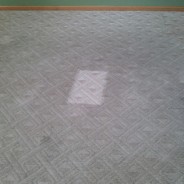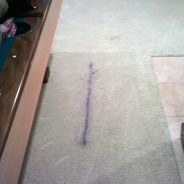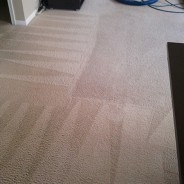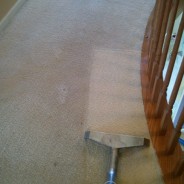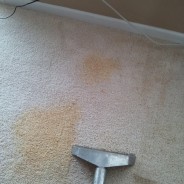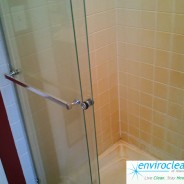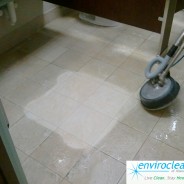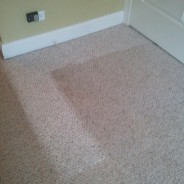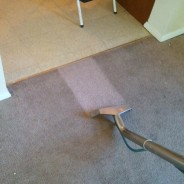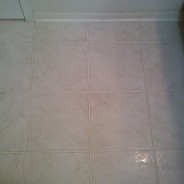How to select Carpeting
Thinking about replacing your carpet? This can be a very confusing task. We suggest that you research each type before you purchase. Buying carpet can be a large investment. Before making this large investment, did you have your carpeting professionally & properly cleaned? This maybe all that your carpet needs to be brought back to life. However, if you had your carpeting professionally cleaned and you are still considering replacement, You want to make sure that whatever you decide to buy will be the best for you and your family. Here is a link that will decribe different types of carpeting http://thehousingforum.com/how-to-select-carpet/ Something to remember is that each type of carpeting will respond differently to cleaning. If you have any questions please let us know.
How is Carpeting Made?
Did you ever wonder how carpeting is made? Let’s take a little trip to the link below. You may find it interesting.
Allergies and Asthma
Carpet acts as a trap for airborne particles grounded through natural gravity.
Many healthcare professionals will recommend the removal of carpet from homes of their allergy and asthma patients; however that thought is based on assumption, when in fact clean, dry, well-maintained carpet actually improves air quality. Check out http://www.carpet-health.org/aa.asp to watch an informational video, read studies, and learn more about how carpeting can improve your indoor air quality.
How to reduce allergens in your home
Hi everyone,
Yep, it’s getting close to that time of the year again. Allergy season yuck! If you’re an allergy sufferer, you are always looking for ways to find any type of relief. So here are a few ideas for you.
Control Ventilation and Filter the Air.
Many homeowners in the Spring time want to open windows to let all that fresh air in…well…when we do that, it allows the outdoor allergens such as pollen and mold spores into the house. What you actually want to do is use heat and air conditioning to clean, circulate and dehumidify the air in your home. Using a HEPA filter to remove airborne allergens will also help. When it comes to dust mites, they are a heavy particle that do not stay airborne. Dust mites will settle on the floor or carpeting quickly, so air filters and air purifiers will not work with these allergens. Vacuuming weekly will help and having your carpeting cleaned every 6 months or once a year will help also.
Reducing Moisture in your home will help with dust mites and mold which thrive only in high humidity areas. Keep your humidity level below 55 percent.
Regular cleaning is the best way to reduce allergens. Proper cleaning procedures will stop most allergens from accumulating. Pay special attention to the bedrooms. 60% of dust mite allergens are found in mattresses and bedding. It is very important to wash bed linens in hot water (at least 130 F) weekly and vacuum your mattress regularly.
disinfecting kitchens and bathrooms with proper cleaning procedures at least weekly to stop mold growth.
Vacuuming at least once a week – twice a week in bedrooms and high traffic areas. Use a vacuum that bears the Carpet and Rug Institutes Seal of Approval (SOA) they have been tested and meet strict standards for removing soil and containing the dust in the bag. A whole house central vacuum system is prefered.
For further information on carpet go to the Carpet and Rug Institutes web site http://www.carpet-rug.com
Allergy Q & A
Q. What is an allergen?
A. An allergy is any substance that can trigger an allergic response. Although many allergens in your environment can trigger allergic symptoms, house dust is the main culprit in indoor allergies . Outdoor allergens , tiny particles of mold and pollen that, when inhaled, may cause allergic rhinitis (hay fever) symptoms.
Q. What is house dust?
A. House dust is an airborne mixture that might contain fine particles of soil and plant material from indoors or outdoors, particles of human and animal skin (dander) and hair, fabric fibers, mold spores, dust mites, fragments of insects that have died and their waste, food particles, and other debris.Q. What happens when a person comes in contact with allergens?
A. When an allergic person encounters an allergen, the immune system becomes activated. This triggers a complex chain of events, which produce symptoms of an allergic reaction, such as swelling of tissues, sneezing, wheezing, coughing, and other reactions.
Q. Who gets allergies?
A. Doctors do not fully understand why certain people get allergies while others do not. However, they do know that allergies can develop at any age, and heredity plays a key role.
Q. How do I find out more about allergies?
A. You will need to contact an allergist/immunologist. They will be able to perform tests to determine the source of your allergies.
Indoor Allergens / Outdoor Allergens
http://www.emedicinehealth.com/indoor_allergens/article_em.htm
Truth or Myth: Carpet Aggravates Allergies
Allergy season is just around the corner. Many homeowners believe that their families health is directly related to the cleanliness of their floors. Attached is a link from the Housekeeping channel that has a very interesting artical on this study. Truth or Myth?
http://www.housekeepingchannel.com/a_705-Truth_or_Myth_Carpet_Aggravates_Allergies
The Ultimate MRSA Guide
Hi everyone,
I thought I’d share with you the type of reading that I enjoy. Every day, I search the internet to find the latest information related to health in the cleaning industry while I attempt to improve my knowledge and bring an advanced level of proficiency to you. I found this technical paper in particular to be absolutely fascinating.
Weve Been Saying This All Along…
If you go to http://www.carpet-health.com/ you will find many articles supporting our position regarding the health benefits that carpeting provides in your home. The website mainly focuses on the arguement of which is better: Carpeting or Wooden / Tiled floors? The supporting information found on this website is a technical resource.
Bed Bugs and Broom Sticks
A recent article was posted in the ICS Cleaning magazing regarding bed bugs, dust mites and their associated health effects.
To read the full article please visit the link below.
http://www.icsmag.com/Articles/Article_Rotation/BNP_GUID_9-5-2006_A_10000000000000917754
95% of allergies and asthma are triggered by the excrement of dust mites. Dust mites are found where there is dust. Therefore, controlling the exposure to dust mites will help to improve your indoor air environment and by default improve your health.
For any questions or comments, please click on the comment button below.
The Definition of Clean
Cleaning…A Definition:
As a Health and Hygienic Issue: To make safe for human habitation. To reduce and or remove potentially unsafe biological contaminates and germs within an indoor environment in an effort to reduce exposure to unhealthy issues.
As a Cosmetic Issue: To make more appealing. To satisfy subjective vanity concerns. To hide unpleasant blemishes. To optically enhance a visually unpalatable issue.
As Both a Health and Cosmetic Issue: To combine both definitions as described above.
We are the only carpet cleaning company that we are aware of whose primary focus is Health Care cleaning. We have spent years researching the contaminates which reside within our homes and buildings, and we have designed cleaning (healthful cleaning solutions) programs to address Indoor Health Quality. You will not find health care as the primary focus of any other carpet cleaning company. They may say that cleaning carpeting is healthy, but you must remember, it is not what you do, but how you do it. Most companies provide healthy amounts of Lip service, unfortunately, assuming that because they “cleaned” for cosmetic issues, it (whatever was “cleaned”) by default must therefore be healthier. Frankly, cosmetic cleaning runs counter to hygienic cleaning, however, if performed correctly, the two issues can be combined for a healthy and cosmetically appealing result. Why do we wash our hands many many times each day? To remove germs of course.
I recently read an article entitled “10 things your hospital won’t tell you, You may leave sicker than when you came in.” The article described how approximately 2 million people per year in the USA alone contract hospital related infections, and about 90,000 (over 100,000 is more accurate) of them will die from an infection such as MRSA, according to the Centers for Disease Control and Prevention. That’s equal to about 300 people dying every day from an infection contracted during a stay at a hospital. Just imagine, most of those illnesses and deaths are preventable. Unfortunately, poorly trained janitors using poorly devised “cleaning” procedures do not address health and hygienic issues. They merely address cosmetic issues in the hopes that their effort leads to an improvement in the indoor environmental quality. Truly, it is the administrators of cleaning programs who are ultimately responsible for the lack of education regarding the objectives of appropriate health and hygienic focused results. In fact, it is administrators of cleaning programs who define cleaning as a cosmetic issue. They realize that their job is dependent upon appearance, and unfortunately, they must spend a majority of their efforts satisfying cosmentic issues at the expense of human safety.
Mold Facts — The Truth About Mold
What is Mold? good mold facts
Mold is a fungus that can be found both indoors and outdoors. No one knows how many species of mold exist but estimates range from tens of thousands to perhaps three hundred thousand different kinds of mold. Mold grows best in warm, damp, and humid conditions, and spread and reproduce by making mold spores. Mold spores can survive harsh environmental conditions, such as dry conditions, that do not support normal mold growth. Some of the common forms of indoor mold species are Cladosporium, Penicillium, Alternaria and Aspergillus.
What causes mold to grow?
Mold occurs naturally, and is found everywhere. When abnormally high concentrations of mold are found indoors, problems result. There are four major elements that contribute to indoor mold growth:
- Food source – mold feeds on all sorts of cellulose materials such as wood, fabrics, wall paper, and other materials commonly found in the home.
- Temperature – mold thrives in temperatures between 40 and 110 degrees Fahrenheit.
- Oxygen – Although mold needs air, it grows best in areas of poor ventilation.
- Water – mold needs water, moisture or high humidity in order to grow.
How does mold travel? mold facts
Mold spores can migrate through the air, through water, and can hitch a ride on a host, such as humans and their clothing. Airborne mold spores will follow air currents created by normal movements of family members from one room to another, and up and down stairs.
Is mold dangerous? facts about mold
Mold spores release “mycotoxins” into the air, which are inhaled or absorbed through the skin. Some people are particularly sensitive to molds. For these people, exposure to molds can cause symptoms such as nasal congestion, eye irritation, wheezing, or skin irritation. People with severe allergies, or those exposed to large amounts of mold, may have more severe reactions. Severe reactions may include fever and shortness of breath. Some people with chronic lung illnesses, such as obstructive lung disease, may develop mold infections in their lungs.
Where are molds found?
Molds are found in virtually every environment and can be detected, both indoors and outdoors, year round. Mold growth is encouraged by warm and humid conditions. Outdoors they can be found in shady, damp areas or places where leaves or other vegetation is decomposing. Indoors they can be found where humidity levels are high. Places where mold exposures are usually high include basements, unvented bathrooms, saunas, antique shops, florist shops, greenhouses, farms, summer cottages, mills, etc.
Is Mold Making You Sick?
Researchers continue to uncover and discover new data and information about mold and the effects that it has on humans. What we do know is that different molds have different effects on different individuals.
Inhaled mold spores can create allergenic and infectious symptoms that may cause diverse reactions.
The most common symptoms may include eye irritation, runny nose, coughing, sinus pressure, headache, throat irritation, tightness of chest and fatigue.
The most serious symptoms include increased severity of asthma, vomiting, internal bleeding, and organ damage.
It is possible to experience symptoms from mold exposure by ingesting, inhaling, or touching mold. The growth of any type of mold indoors is a potential risk to humans. Thus, mold should be treated with caution and removed from a home or building as soon as possible.
Enviroclean of Illinois, Inc. and its employees are not health professionals – all information above is gathered through trade publications and documents. If you feel you are sick as the result of mold contamination, we recommend you consult with a doctor regarding your health and have your home or building investigated for mold and other potential air quality contaminants.
“Control the moisture, control the mold.”
Commercial Carpet Cleaning Elgin IL
Are you looking for Commercial Carpet Cleaning Elgin IL? Enviroclean services many commercial facilities employing the latest health care standards in our cleaning protocols. Here you will find a video that displays the quality of work you can expect from Enviroclean.
read moreCan stains be removed from carpet?
Here is an example of our expert stain removal process. This large (very large, actually) blue stain was treated using our advanced color modification process.
read moreCarpet Cleaning Huntley IL
We see you are looking for a company to provide Carpet Cleaning Huntley IL. Welcome to the website for Enviroclean of Illinois! This page is a quick introduction to our company. For more information about Enviroclean, please visit our About Us Page. When you are ready to schedule, please call 847-836-6461. We io Here are some photos that were taken while cleaning the carpeting in a Huntley, IL...
read moreLakewood IL Carpet Cleaning
Here is a great example of what you can expect when cleaning with...
read moreProfessional Stain Removal | Carpet or Upholstery Stain Removal and Spot Cleaning
We are experts in stain removal. The key is first identifying the material composition of the carpeting, then defining the source of the staining, and employing the correct process tailored for each stain type. Below you will find one of the many examples of our expert stain removal treatment.
read moreProfessional Shower Tile Cleaning Barrington IL
Thinking about replacing the tile in your shower because of soap scum and hard water staining? Take a look at the photos below to see the difference that was attained by employing our shower tile cleaning process.
read moreTile and Grout Cleaning Barrington IL
Here is an example of Tile and Grout Cleaning performed in Barrington, IL.
read moreCarpet Cleaning Bartlett IL
Here is an example of what you can expect when you have Enviroclean clean the carpeting in your home. This was taken while cleaning the carpeting at a home in Bartlett, IL. For more information on Enviroclean, please visit the About Us Page. To view our Carpet Cleaning information page, please visit the Carpet Cleaning Page. Examples Carpet Cleaning Bartlett...
read moreCarpet Cleaning Lake in the Hills IL
Here is an example of what you can expect when you schedule with Enviroclean. These photos were taken while servicing a home in Lake in the Hills, IL.
read moreTile and Grout Cleaning Gilberts IL
This is an example of what you can expect from our tile and grout cleaning service. This was performed at a home in Gilberts IL
read more

